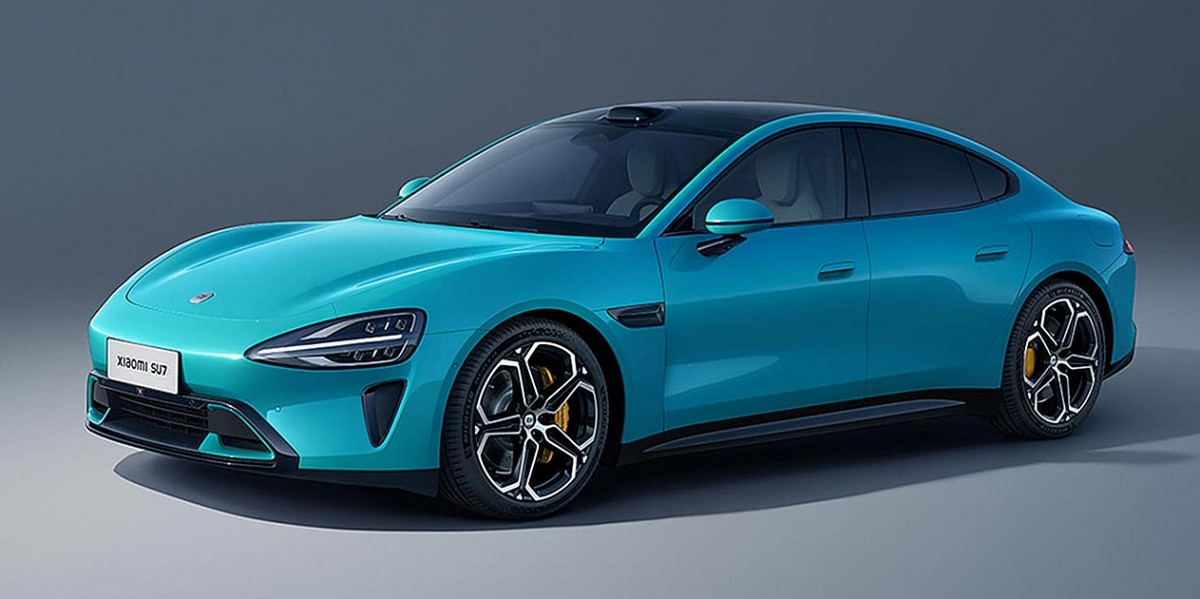The Chinese tech giant is making bold moves in the electric vehicle industry. Here’s what it means for the future of EVs, Xiaomi’s global expansion, and the auto industry at large.
Xiaomi’s Big Bet on Electric Cars
Xiaomi, widely known for its smartphones and smart home devices, is shifting gears—literally. The company is making an aggressive push into the electric vehicle (EV) sector, securing a staggering $5.5 billion (€4.96 billion) through an upsized share sale. Originally planning to sell 750 million shares, the company ended up offering 800 million shares at HK$53.25 each, thanks to overwhelming investor demand.
This fundraising effort underscores Xiaomi’s long-term commitment to dominating the EV space, a venture it only entered last year with the launch of its sleek SU7 sedan. The Hong Kong-listed tech giant now aims to position itself as a formidable challenger to China’s EV powerhouses like BYD, Nio, and even Tesla’s growing presence in the country.
Investor Confidence Surges

The success of Xiaomi’s share sale comes as no surprise, given the company’s remarkable 150% stock price surge over the last six months. While the final share price landed toward the lower end of the initially suggested range (HK$52.80 to HK$54.60), the offering was heavily oversubscribed, attracting over 200 investors. Notably, the top 20 investors alone grabbed around 66% of the available stock, signaling strong market confidence in Xiaomi’s future.
So, why are investors so bullish on Xiaomi?
-
Xiaomi has a track record of breaking into new markets successfully. From smartphones to smart home devices, it has consistently expanded its product lines while keeping affordability and innovation at the core of its strategy.
-
China’s EV market is booming, and Xiaomi has the financial muscle, technological expertise, and brand loyalty to carve out a significant share.
-
The company is investing heavily in research and development (R&D), particularly in AI-driven autonomous driving technology.
Where Will the Money Go?
Raising billions of dollars is just the first step. Xiaomi has a clear roadmap for how it plans to use this fresh capital:
1. Expanding EV Production Capacity
Xiaomi has set an ambitious target of producing 350,000 EV units in 2025—a massive jump from its 135,000 SU7 sedans delivered in 2024. To meet this goal, the company is:
-
Scaling up production facilities
-
Streamlining supply chains
-
Enhancing manufacturing capabilities
2. Investing in Artificial Intelligence (AI) and Autonomous Driving
A significant chunk of Xiaomi’s 2025 research and development budget—RMB 7 to 8 billion—will be dedicated to AI innovations in its EVs. This means:
-
Smarter driving assistance features for a safer, more intuitive experience
-
Advanced autonomous driving capabilities to compete with Tesla’s Full Self-Driving (FSD) system
-
Seamless integration with Xiaomi’s smart ecosystem, allowing users to control their car through their smartphones and smart home devices
3. Expanding to International Markets
While Xiaomi’s primary focus is on China, it has bigger plans. The company aims to enter the global EV market by 2027, bringing its vehicles to regions like Europe, Southeast Asia, and beyond. To support this, it has:
-
Acquired a 52-hectare (128.5-acre) plot of land in southern Beijing to construct the third phase of its auto factory
-
Strengthened partnerships with battery suppliers and AI developers
-
Started forming strategic alliances with global automakers to ease international expansion
China’s EV Boom and Xiaomi’s Role in It
Xiaomi’s push into the EV industry comes at a time when China is dominating the global electric vehicle market. The country is home to some of the world’s largest and most innovative EV manufacturers, and demand for electric cars is skyrocketing due to government incentives, rising fuel costs, and environmental concerns.
Xiaomi’s move is also part of a larger trend of Chinese tech companies raising billions through Hong Kong’s stock market. Following a key summit between President Xi Jinping and major tech industry leaders, there has been a noticeable easing of regulatory pressures, allowing companies to secure more funding for expansion.
In fact, in Q1 2025 alone, Chinese firms have raised over €15.14 billion in equity capital, more than double the amount raised in the same period last year. Xiaomi’s successful fundraising is a strong indication that investor sentiment is rebounding, and the Hong Kong Stock Exchange remains a major financial hub for high-growth tech firms.
Challenges Ahead for Xiaomi’s EV Dream
Despite its strong start, Xiaomi still faces several challenges in the ultra-competitive EV industry:
-
Fierce competition from Tesla, BYD, and Nio: These brands already have a strong foothold and well-established supply chains.
-
EV production delays and chip shortages: The global semiconductor shortage continues to impact production timelines.
-
Building consumer trust in a new market: While Xiaomi has brand loyalty in the tech space, convincing car buyers to trust a new automaker is a different challenge.
However, if there’s one thing Xiaomi has proven time and time again, it’s that it knows how to disrupt markets. The company’s ability to deliver high-tech, cost-effective solutions has made it a global powerhouse in the smartphone industry—now, it aims to do the same in EVs.
What’s Next for Xiaomi’s EV Dream?
Xiaomi has made it clear: it’s no longer just a smartphone company. With billions in new funding, a growing EV lineup, a major push into AI, and a global expansion strategy, the company is setting itself up as a serious player in the electric vehicle industry.
Read also: BMW Unveils Next-Gen i3 Sedan: Faster Charging, Longer Range & Cutting-Edge Tech
But the big question remains: Can Xiaomi truly compete with the likes of Tesla, Nio, and BYD?
Only time will tell. But one thing is certain: the EV race in China is heating up, and Xiaomi is charging full speed ahead.
















Got a Questions?
Find us on Socials or Contact us and we’ll get back to you as soon as possible.